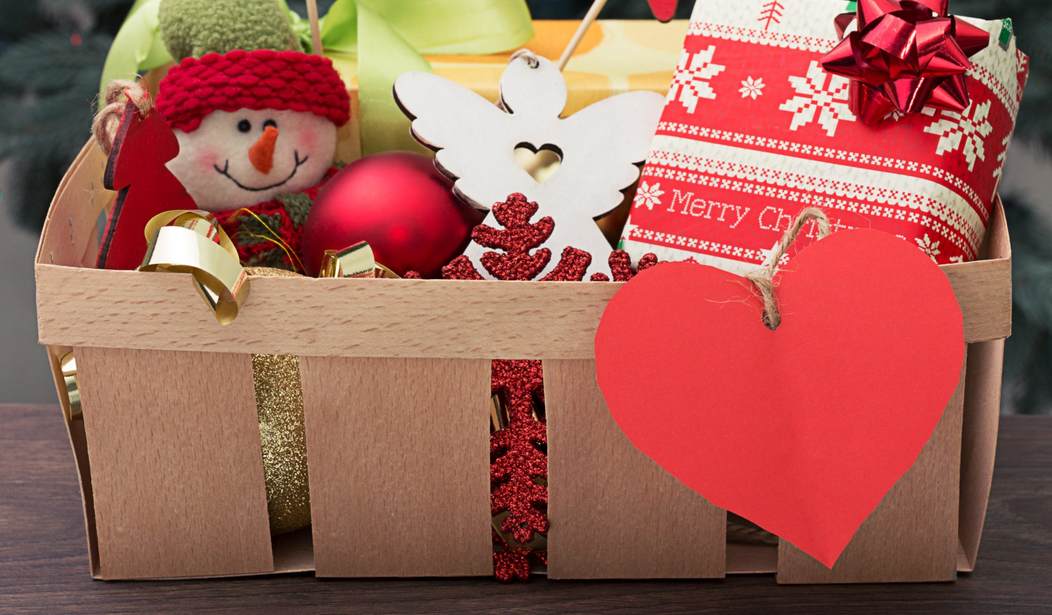I’m an Orthodox Jew, but I haven’t always been. My parents were in a mixed marriage; my mother was Catholic, my father Jewish. Growing up, we celebrated the holidays of both faiths, though from a fairly young age I self-identified as Jewish, even after my parents separated and I became estranged from my father. I soon pushed back against Christian holidays and proclaimed I would refuse to accept Christmas and Easter gifts, trying to get out of as much of the holidays as possible. I wasn’t trying to be rebellious as much as I was trying to firmly establish my identity as Jewish, both for myself and my family.
Generally speaking, my mother was surprisingly comfortable with my decision to practice Judaism, and she even helped teach me about Jewish laws and holidays. During Passover and Rosh Hashanah, she would ask Jewish friends and coworkers to host our family so that we could experience a traditional meal and learn about how it was celebrated.
During the “winter holiday season” we celebrated both Hanukkah and Christmas. My mother didn’t ask a lot, but she required mutual respect. I wrapped my mother’s presents in Christmas paper and gave them to her on Christmas morning. In turn, she gave me my wrapped Hanukkah presents on every night of the holiday as we lit the candles of the menorah and stumbled through the prayers together. Out of guilt and a sense of tradition, she still held onto a few gifts for Christmas morning, which I was never principled enough to refuse.
Despite this generally relaxed attitude regarding my individual spiritual path, there was one part of my mother’s Christmas tradition that she refused to let me give up: our Christmas Eve present deliveries.
Growing up, she told me that it was a tradition that her family had as well. They would identify a family in need — individuals who had experienced hardship or tragedy recently — and make an evening drop-off on Christmas Eve, ringing the doorbell and watching the family discover the gifts they had handpicked for each member. She carried on the tradition when she had her own family.
As I got older, our own financial situation became more and more precarious. My mother became disabled and sick with multiple chronic illnesses. We lived in a single wide, two-bedroom mobile home in a trailer park in rural Upstate New York. We lived off of sporadic child support payments from my father and disability payments. Our ability to make these gift baskets shrunk and for the last few years of my mother’s life, we sometimes had to choose between our own gifts and those for our mystery adopted family. It also became more difficult to find families more hard-up than our own; a single disabled mother and a young teen, too young to work. Despite that, to my chagrin, we still made these personalized baskets, even if it was for families struggling just as much as we were.
I would ask my mother why we were spending what little money we had on gifts for others when it was never done for us. I was heartbroken giving away board games and clothes to girls my own age instead of wrapping them for under our Christmas tree.
What I didn’t understand then was the true value of Christmas, that the presents I would have received would have eventually been outgrown or broken, but that the lessons my mother taught me and the warm feelings I had giving these gifts were worth more than the money we used to pay for them.
As a Jewish mother maintaining a fully Jewish household, we obviously don’t have a Christmas tree or stockings on our mantle. I look forward to Christmas because my husband has the day off of work, but there’s little else about the holiday that’s notable for us. I make a point to wish everyone I meet during late December (who’s obviously not Jewish or Muslim) a Merry Christmas because I want to show others the same respect I receive around Jewish holidays.
This tradition of mystery gift-giving, however, is the one and only Christmas tradition from my mother I plan to carry on for my children. My family is treated with respect during the Jewish holiday season by our Christian neighbors, both specific ones in our community and Christians more generally speaking. While our family may not share the same beliefs regarding the Virgin Birth and Jesus Christ, we should be teaching our children about charity, which is a universal value for both Jews and Christians.
Passing this tradition on won’t just teach my children about charity, but also about what a charitable and selfless individual their late grandmother was (she passed when I was sixteen years old). Last year we donated gifts to a family of children in foster care; this year we sent anonymous gifts in an Amazon care package to a family who experienced tragedy right before the holiday. In coming years I hope to put gifts together and physically deliver them as I did as a young child with my own mother.
Regardless of a family’s religious beliefs, this is a season of giving. My Jewish family will be participating in the only way we can, which is also the most valuable.









Join the conversation as a VIP Member